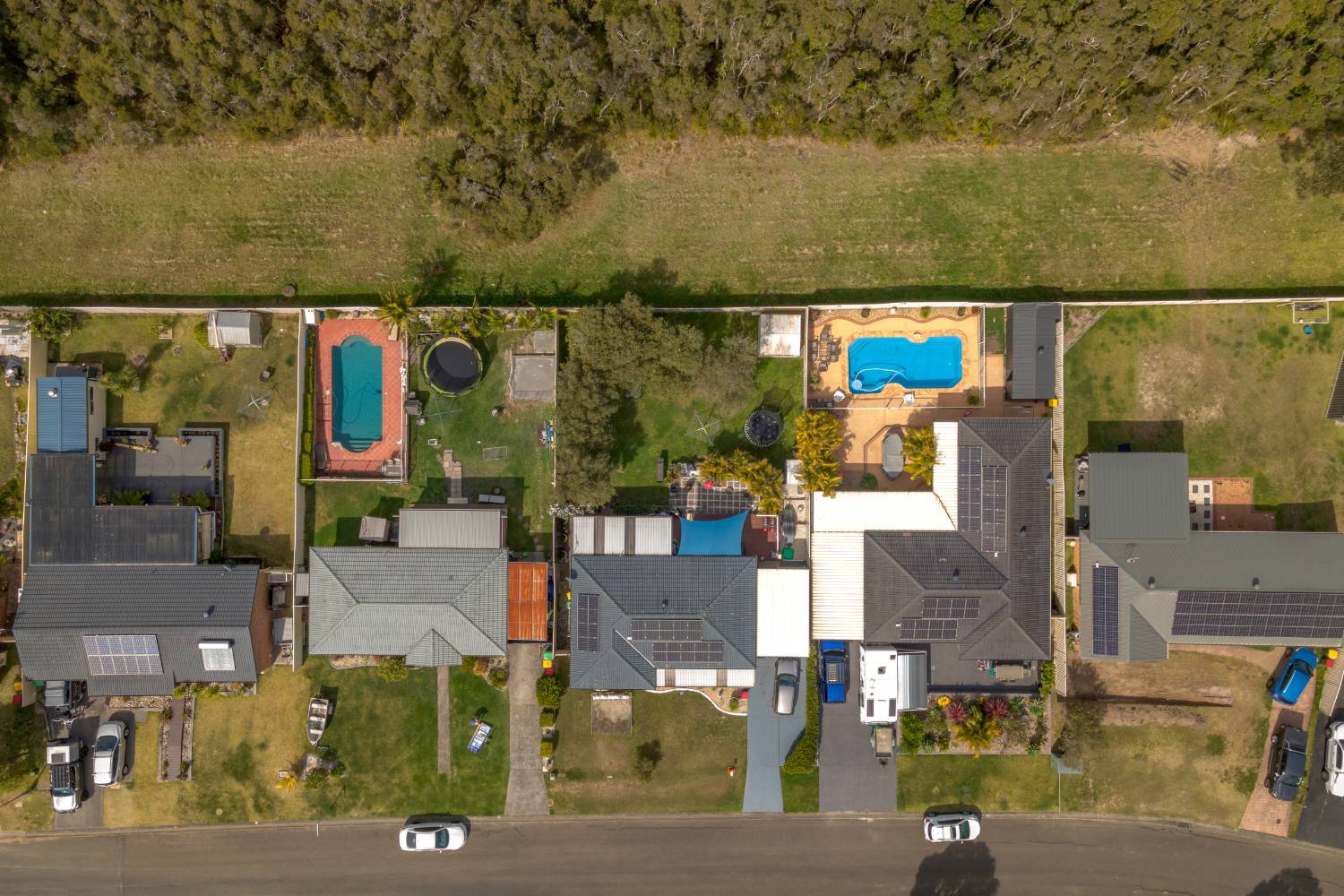Investing in Australian property offers Malaysian investors significant opportunities for financial growth. However, it also has complex tax implications that need careful consideration.
This article breaks down the main tax obligations Malaysian investors should be aware of in Australia and Malaysia to ensure they stay compliant and optimise their investment returns.
Let’s Get Straight To The Point
Investing in Australian property offers Malaysian investors financial growth but comes with complex tax obligations in both countries.
Malaysia taxes worldwide income, including rental earnings from Australia, but offers a foreign capital gains tax exemption from 2024 to 2026. Australian tax obligations include Capital Gains Tax (CGT), rental income tax, and state-based land tax surcharges.
Investors can claim foreign tax credits under the Malaysia-Australia Double Taxation Agreement (DTA) to avoid double taxation. Compliance with evolving tax laws is crucial, and seeking professional tax advice can help optimise returns while meeting legal obligations.
1. Malaysian Tax Treatment Of Foreign-Sourced Income
Investors in Australian property need to understand how foreign-sourced income is taxed in Malaysia.
As a tax resident of Malaysia, your worldwide income is subject to taxation, which includes any rental income or capital gains you receive from Australian property.
Foreign-Sourced Income Exemption (2024-2026)
- From January 1, 2024, to December 31, 2026, Malaysia offers an exemption on gains from the disposal of foreign capital assets. This applies to profits made from selling Australian property.
- The exemption applies to various entities, such as companies, limited liability partnerships, and trusts, provided they meet the required economic substance criteria. Essentially, businesses need to prove that they are genuinely conducting activities in Malaysia to qualify for this exemption.
Tax Residency And Reporting Obligations
- If you are a tax resident of Malaysia, you are required to report all foreign-sourced income, including any earnings from Australian property. However, the country’s tax system allows certain exemptions if you do not remit the income to Malaysia.
- Rental income earned from Australian properties must be declared in Malaysian tax returns. It will be taxed according to Malaysian tax rates.
Impact Of Tax Residency On Rental Income
- If remitted to the country, rental income from Australian properties is generally taxable in Malaysia.
- However, Malaysian tax law allows tax residents to benefit from the remittance basis, which means they are only taxed on foreign income once brought into the country.
2. Australian Tax Obligations For Foreign Investors
When investing in Australian property, you must fulfil several Australian tax obligations, particularly rental income and capital gains tax (CGT).
Capital Gains Tax (CGT) On Australian Property
- CGT for Foreign Investors: Any capital gain you make is subject to CGT when you sell your Australian property. As a foreign investor, you are not entitled to some exemptions available to Australian residents, such as the main residence exemption.
- Foreign Resident Capital Gains Withholding Tax (FRCGW): Starting January 1, 2025, foreign investors’ withholding tax rate on capital gains from property sales will increase from 12.5% to 15%. This means a 15% withholding tax will be deducted at the point of sale regardless of the sale value.
Land Tax And Surcharges On Australian Properties
- Annual Land Tax: The land tax that applies to all Australian investment property owners differs according to the state where the property is situated. Land tax is typically charged based on the value of the land.
- State-Based Surcharges: Some states impose additional surcharges on properties owned by foreign investors. These surcharges can be substantial and add to the cost of owning property in Australia.
Example of Surcharge Rates:
- New South Wales: 2% surcharge on the land value for foreign owners.
- Victoria: 1.5% surcharge on land owned by foreign investors.
Reporting Rental Income In Australia
- Taxable Rental Income: Any rental income from Australian properties must be reported to the Australian Taxation Office (ATO). This income is taxed at the applicable individual or corporate tax rates.
- Tax File Number (TFN): You must apply for an Australian Tax File Number (TFN) to meet your Australian tax obligations. This number is essential to file rental income and capital gains tax returns.
- Tax Filing Requirement: If you earn rental income or make capital gains from property sales, you must lodge an Australian tax return to report these earnings and comply with Australian tax laws.
3. Ongoing Compliance And Reporting Obligations
Investing in Australian property comes with ongoing compliance responsibilities. In addition to filing tax returns in both countries, you must stay updated on changes to tax laws that may affect your obligations.
Maintaining Tax Residency Status
- Tax Residency: If your tax residency status changes, it may significantly impact how your income is taxed. Ensure to notify Australian and Malaysian tax authorities of any changes in your residency status.
Implications of Tax Residency Status:
- If you become an Australian tax resident, you will be taxed on all your income, including that generated in Malaysia.
- If you remain a tax resident of Malaysia, you can benefit from the remittance basis of taxation on foreign income.
Changes In Tax Laws
- Australian Tax Law Changes: Tax laws in Australia are subject to change, and these changes could affect your investment in Australian property. Keep track of any new regulations related to property taxes, CGT, and land taxes that could impact your investment strategy.
- Malaysian Tax Law Changes: Similarly, Malaysia may adjust its tax policies, especially regarding foreign-sourced income exemptions. Staying informed will help you plan for any adjustments.
Seeking Professional Advice
- Tax Professionals: Given the complexity of tax systems in Malaysia and Australia, it is critical to seek advice from tax professionals. They can guide you through the intricacies of cross-border taxation and help ensure you maximise your tax benefits while remaining compliant with the law.
4. Double Taxation Considerations
One of the key challenges for Malaysian investors in Australian property is the potential for double taxation.
Malaysia and Australia have different tax systems, and investors in Australian property could be taxed on the same income in both countries.
Double Taxation Agreement (DTA) Between Malaysia And Australia
- Malaysia and Australia have a Double Taxation Agreement (DTA) to prevent double taxation. Under this agreement, Malaysian investors can claim a tax credit for any tax paid in Australia, which helps offset any tax liabilities in Malaysia.
- Tax Credit Mechanism: If you pay tax on rental income or capital gains in Australia, you may be eligible for a tax credit in Malaysia to reduce your overall tax liability.
Foreign Tax Credits And Their Application
- Claiming Foreign Tax Credits: Malaysian investors can claim foreign tax credits in their Malaysian tax returns to avoid double taxation. These credits reduce the tax payable in Malaysia on the same income taxed in Australia.
- Professional Tax Advice: Due to the complexity of foreign tax laws, you should speak with tax experts in Malaysia and Australia to ensure compliance and maximise your tax situation.
5. The Malaysia My Second Home (MM2H) Program And Tax Benefits
The Malaysia My Second Home (MM2H) programme offers tax benefits to Malaysian investors who purchase property overseas, particularly in Australia.
Exemption On Foreign-Sourced Income
- MM2H participants may be exempt from Malaysian tax on foreign-sourced income. This means that rental income or capital gains from Australian properties may not be subject to Malaysian tax if they are not remitted to Malaysia.
- This tax benefit is particularly valuable for investors who plan to live in Australia under the MM2H programme, as they can avoid double taxation on income generated in Australia.
Impact On Tax Residency Status
- MM2H and Tax Residency: Participating in the MM2H programme may also affect your tax residency status in Malaysia. If you become a tax resident of Australia while under MM2H, your income may be taxed differently in both countries.
Conclusion
Investing in Australian property presents lucrative opportunities for Malaysian investors but also involves complex tax obligations in both countries. Understanding Malaysia’s foreign-sourced income rules, including exemptions from 2024 to 2026, is crucial for compliance and tax efficiency.
Additionally, Australian tax responsibilities such as Capital Gains Tax, land tax surcharges, and rental income reporting must be carefully managed. Given the potential for double taxation, the Double Taxation Agreement (DTA) between Malaysia and Australia provides relief through tax credits.
Investors should stay informed about evolving tax laws and seek professional advice to navigate these regulations effectively. By doing so, they can optimise their investment returns while ensuring full compliance with tax authorities in both nations.
Frequently Asked Questions
Are There Other Taxes I Need To Be Aware Of When Investing In Australian Property?
Aside from CGT, rental income tax, and land tax, you should also consider state-based taxes and surcharges, which can vary significantly between states. For example, New South Wales and Victoria impose surcharges on properties owned by foreign investors, which could increase your overall tax burden.
Can Tax Laws Change, And How Can I Stay Informed?
Yes, tax laws in both Malaysia and Australia can change, and it’s important to stay informed about these changes to avoid any unexpected tax liabilities. You should regularly review tax updates from official sources and work with tax professionals to ensure compliance.
What Are The Tax Implications Of Owning Multiple Properties In Australia?
Owning multiple properties in Australia may increase your land tax liability, as land tax is based on the value of the land. You will also be subject to capital gains tax on each property when sold.
Will I Have To Pay Stamp Duty Or Other Australian Property Taxes?
Foreign investors often pay higher stamp duty rates in Australian states and may be subject to land tax surcharges. The rates vary depending on the state where the property is located.
What Is The Process For Claiming Foreign Tax Credits In Malaysia?
To claim foreign tax credits in Malaysia, you must report the foreign taxes paid in Australia on your Malaysian tax return. The tax credit will offset your Malaysian tax liability on the same income, reducing your double tax burden. Consulting a tax professional can help you claim the correct tax credit amount.



